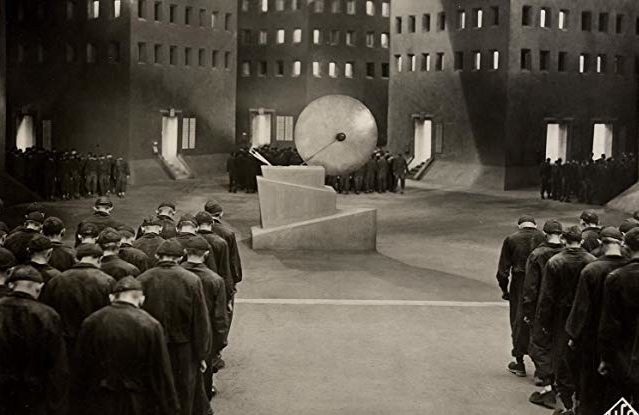That wouldn't work from where I'm sitting, especially since what I said took place in OTL.
What took place IOTL and why wouldn't it work? The only place I know of that tried a Tobin Tax-Europe-did not see mass deindustrialization. For most of the EU, they held steady or even gained in industrial employment.
your linked paper on automation not killing jobs is quite... um... faulty, largely from what I gleaned from it being 'ignores the technological context completely despite the fact that it determines practically everything historically', and thus follows an orthodoxy that doesn't work.
Which paper, there's three alone in the OP and I have several more? The argument concerning automation killing jobs ignores the context entirely of the arguments made; U.S. corporations have used increasing automation to keep output level but reduce workforces. In previous decades, they used productivity gains to increase output instead of keeping it steady, which meant you saw employment gains rather than decreases. This is, of course, ignoring the fact there's evidence to suggest the problem isn't even necessarily that
and absolves automation entirely:
Between 2000 and 2016, the average growth in the sector’s real output was only about 63% of that of the private sector. But when you take out computers out of both data series, the trend is far more striking: Since 2000, manufacturing output expanded at an average pace equal to only 12% of the private sector’s average growth.
In fact, according to Houseman’s data, without computers, manufacturing’s real output expanded at an average rate of only about 0.2% a year in the 2000s. By 2016, real manufacturing output, sans computers, was lower than it was in 2007.
This has grim implications for what had been assumed to be healthy productivity. As with real output, productivity growth comes mostly from the computers subsector’s quality adjustment—which means that the apparently robust growth in manufacturing productivity is mostly a mirage.
To be clear, automation did happen in manufacturing. However, throughout the 2000s, the industry was automating at about the same pace as in the rest of the private sector. And if booming robot-led productivity growth wasn’t displacing factory workers, then the sweeping scale of job losses in manufacturing necessarily stemmed from something else entirely.
It’s not perfectly clear what, exactly, is the culprit behind relatively anemic growth in manufacturing output. But the signs indicate trade and globalization played a much more significant role than is commonly recognized.
Of particular importance is China’s emergence as a major exporter, which
US leaders encouraged. A
pair of
papers by economists David Autor, David Dorn, and Gordon Hanson, found that the parts of the US hit hard by Chinese import competition saw manufacturing job loss, falling wages, and the shrinking of their workforces. They also found that offsetting employment gains in other industries never materialized.
Another
important paper by this team of economists, along with MIT’s Daron Acemoglu and Brendan Price, estimated that competition from Chinese imports cost the US as many as 2.4 million jobs between 1999 and 2011.
Why did China have such a big impact? In their
2016 study, economists Justin Pierce and Peter Schott argue that China’s accession to the WTO in 2001—set in motion by president Bill Clinton—sparked a sharp drop in US manufacturing employment. That’s because when China joined the WTO, it extinguished the risk that the US might retaliate against the Chinese government’s
mercantilist currency and protectionist
industrial policies by raising tariffs. International companies that set up shop in China therefore enjoyed the benefits of cheap labor, as well as a huge competitive edge from the Chinese government’s artificial cheapening of the yuan.
The resulting appreciation of the dollar hurt US exporters—in particular, manufacturers. A
2017 study on the dollar’s appreciation in the early 2000s by economist Douglas Campbell found that the dollar strengthened sharply, in real terms, compared to low-wage trading partners including China. The subsequent increase in foreign imports and diminished demand for American exports resulted in a loss of around 1.5 million manufacturing jobs between 1995 and 2008.
There are also observable signs that automation wasn’t to blame
. Consider the shuttering of some 78,000 manufacturing plants between 2000 and 2014, a 22% drop. This is odd given that robots, like humans, have to work somewhere. Then there’s the fact that there simply aren’t that many robots in US factories, compared with other advanced economies.
Two decades of ill-founded policymaking radically restructured the US economy, and reshuffled the social order too. The America that resulted is
more unequal and more polarized than it’s been in decades, if not nearly a century.
In effect, US policymakers put diplomacy before industrial development at home, offering the massive American consumer market as a carrot to encourage other countries to open up their economies to multinational investment. Then, thanks to the popular narrative that automation was responsible for job losses in manufacturing, American leaders tended to dismiss the threat of foreign competition to a thriving manufacturing industry and minimize its importance to the overall health of the US economy.




